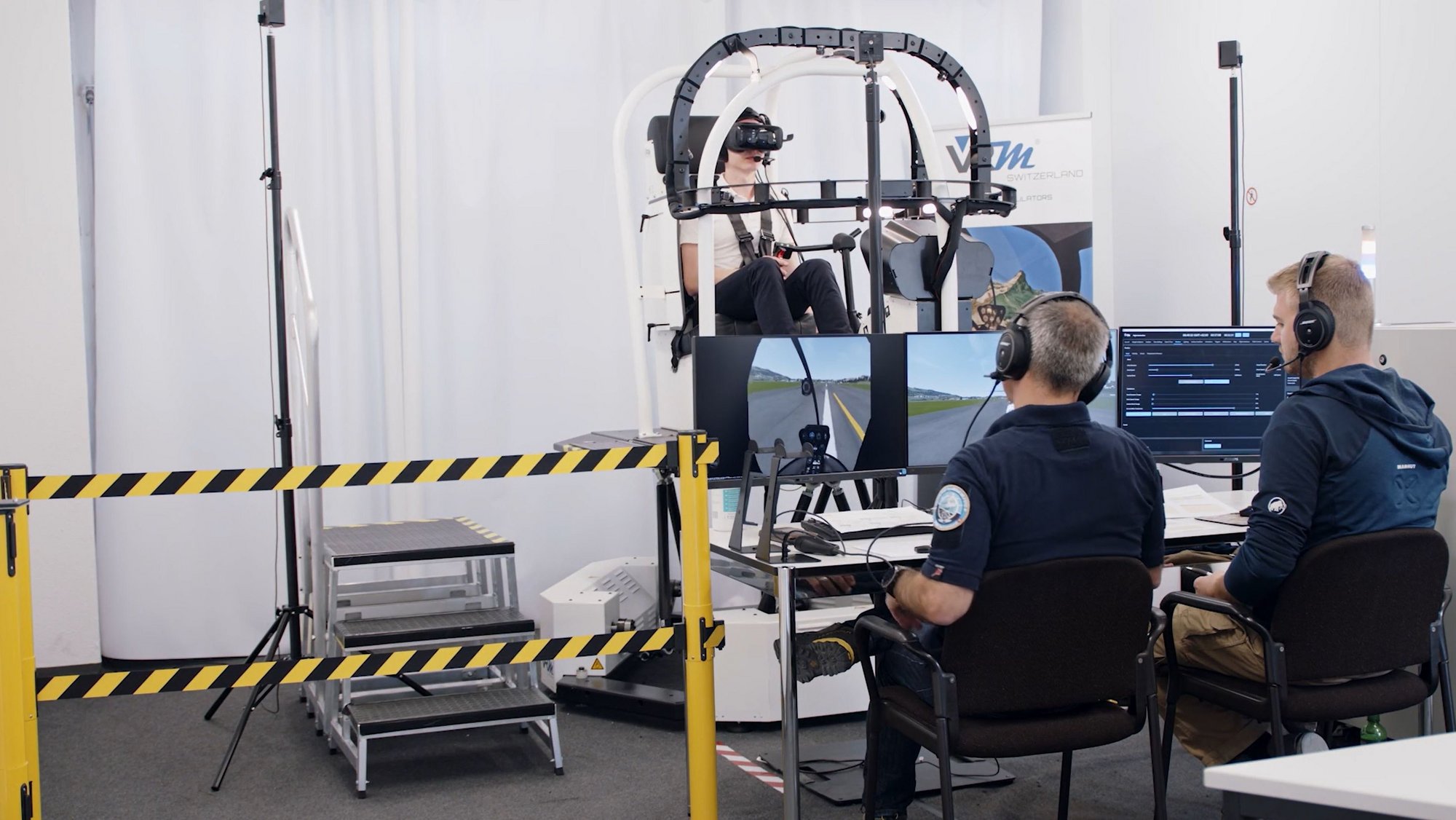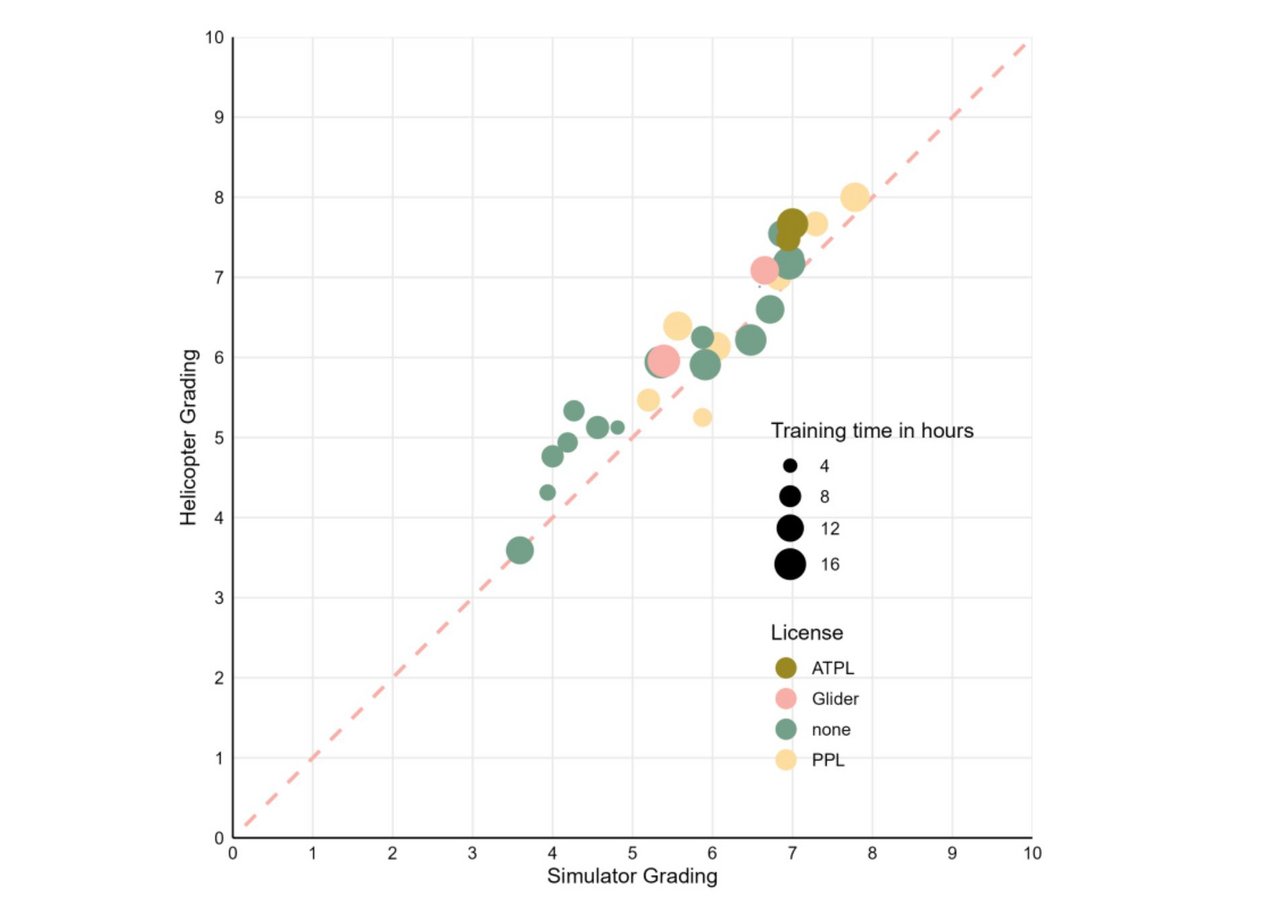Loft Dynamics proves its training device concept for basic helicopter flight training in a scientific research project
Research Setup
35 individuals learned how to execute PPL maneuvers, such as hovering, flying a complete traffic pattern, or handling autorotations, using the VR training device. Their performance was evaluated through a check ride on the simulator and compared with their performance in the real helicopter on the same day.
From Instruction to Mastery Level
Similar to real helicopter training, the participants were trained by certified helicopter flight instructors to learn how to fly the helicopter at a PPL level. Every time a candidate reached the mastery level of an exercise, they were taught further maneuvers. The research showed that the trainees were able to apply their learning without adaptation in the real helicopter at the same level of performance as in the simulator. "This result opens the door for new flight training concepts that were not possible until today,“ says Fabi Riesen, CEO of Loft Dynamics and a test candidate by himself.

Fabi Riesen
CEO & Founder, Loft Dynamics
More FSTD Training Credits and Acceptance by Insurance Companies
"According to our calculations, up to 17 hours of FSTD time could be credited towards a PPL(H) license. For a CPL(H), we proposed a concept to the aviation authority where 50 hours or more are spent conducting an approved simulator training accompanied by an instructor to promote pilot competencies, instead of simply building up flight time on the real helicopter,“ comments Christoph Ammann, a helicopter pilot, airline captain, and flight instructor.
Flight Safety, Training Efficiency and Environmental Protection
"New training concepts like these enhance flight safety, as risky maneuvers can be executed on the simulator. Additionally, students learn independent of weather and time of day, at the required training difficulty, to build up their skills step by step. This reduces training time compared to real helicopter training. The simulator is electrically powered and can be run on solar power, which makes the training free of emissions. Implementing simulator training in basic and advanced flight training has many advantages. The time has come to approve such concepts by aviation authorities and insurance companies,“ Fabi Riesen underlines. "This training can be conducted using both Robinson R22 and Airbus H125 training devices. This allows flight schools of any size and complexity to implement simulator training into their syllabi. This concept also has huge potential for organizations that train fixed-wing airline pilots," says Christoph Ammann.

Christoph Ammann
Airline Captain & Aviation Expert
“The results of the flights in the R22 showed that the participants could even safely perform autorotations, a high -risk and complex maneuver, during their first time flying a helicopter,” says Quirin Zuppiger, the author of the research report.
About Centre of Aviation of the Zurich University of Applied Sciences
The university offers 9 different bachelor’s degree programs. The Centre for Aviation is the only one in Switzerland which offers a degree in aviation. Prof. Dr. Thomas Järmann, Head of Teaching at ZHAW says: «The majority of our lecturers come from the world of business and carry out research and development projects together with partners from the industry. The results flow directly into the lessons and guarantee an up‐to-date and practical study program. Dr. Pierluigi Capone has a degree of MSc in Aerospace Engineering and specializes in Design and Development of Flight Control Systems for fixed and rotary wing aircraft.



